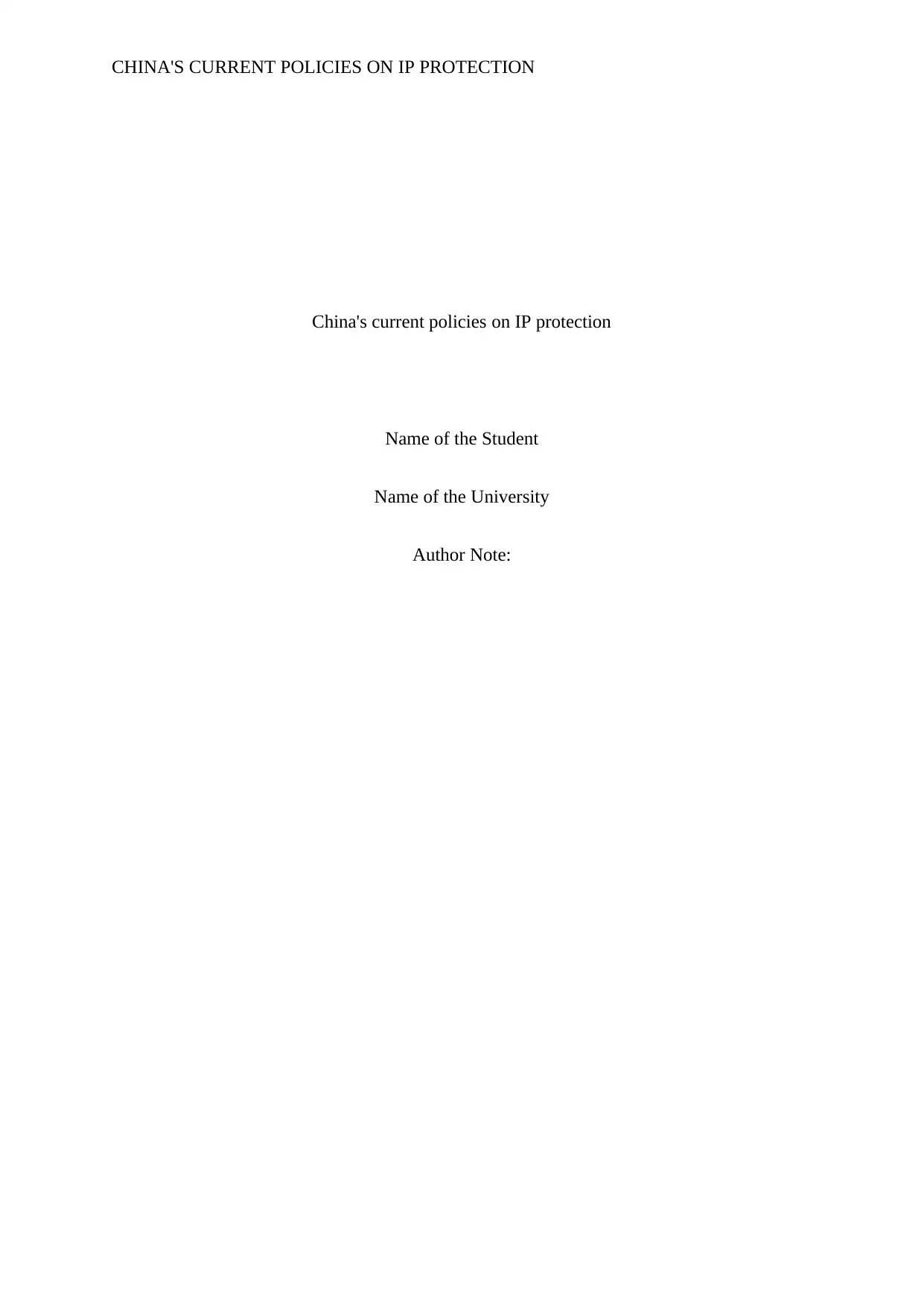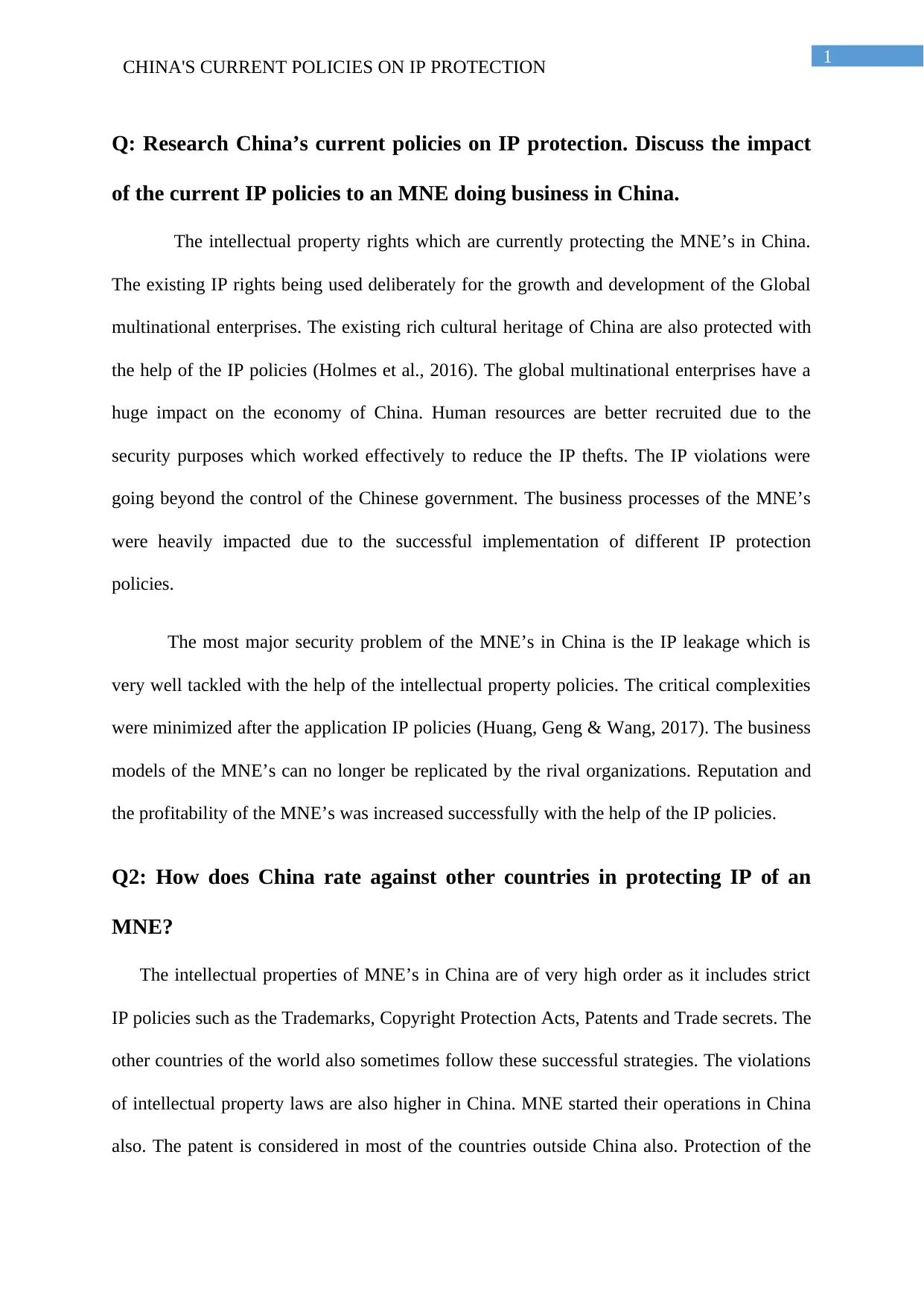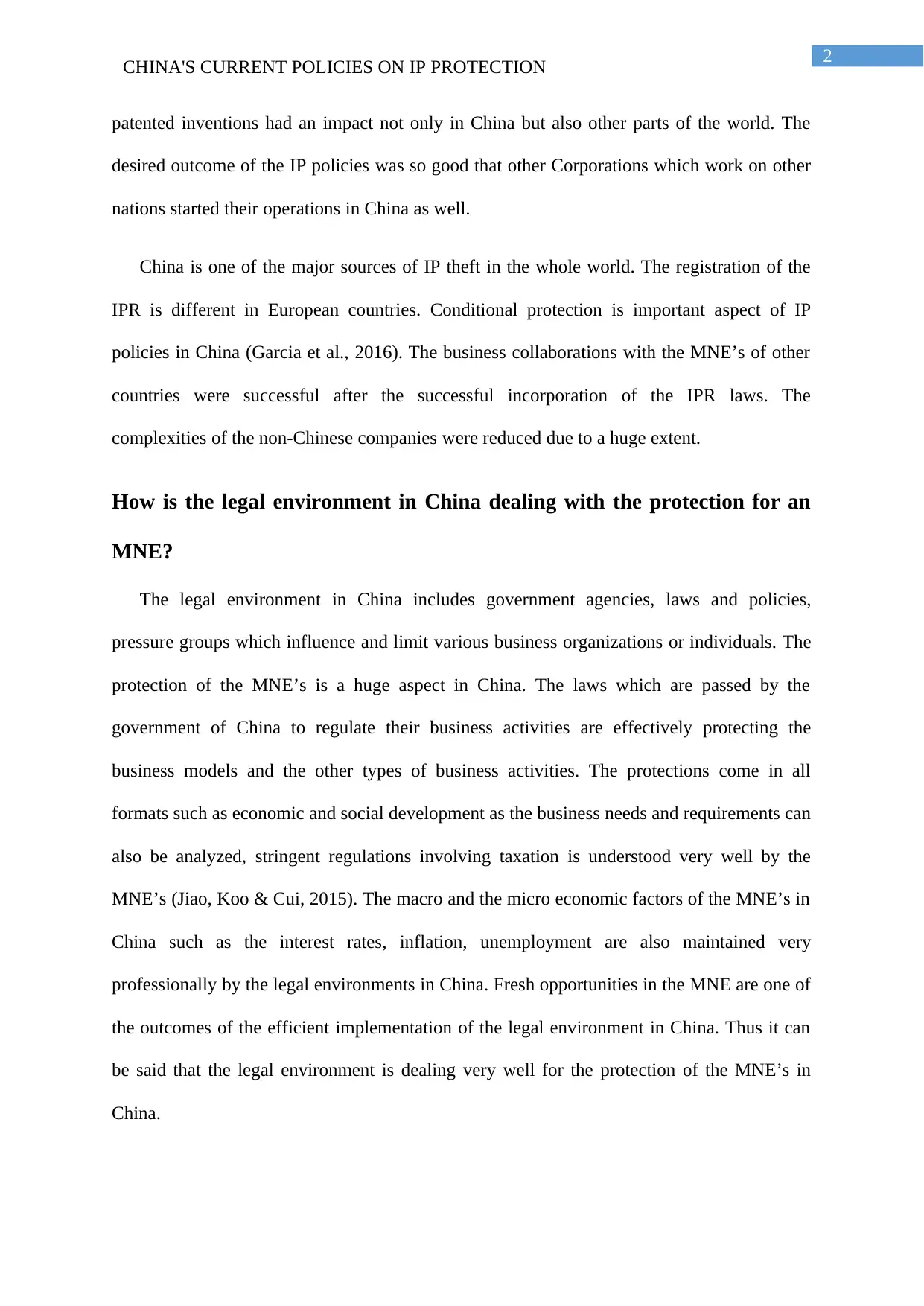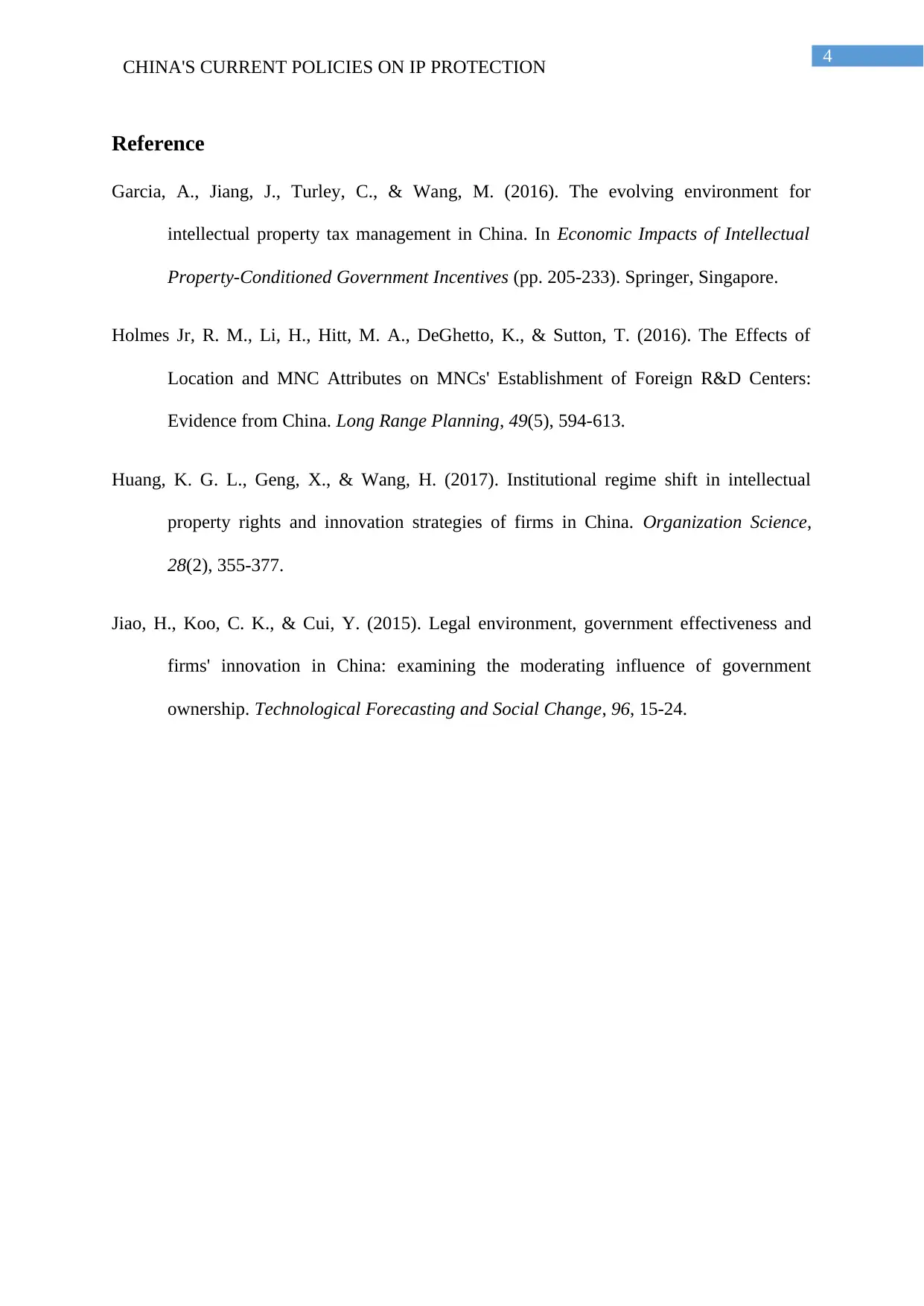Impact of China's Current IP Policies on Multinational Enterprises
VerifiedAdded on 2023/05/31
|5
|931
|129
Report
AI Summary
This report provides an in-depth analysis of China's current policies on intellectual property (IP) protection, focusing on their implications for multinational enterprises (MNEs) operating within the country. The report addresses key questions regarding the effectiveness of these policies in safeguarding MNEs' intellectual property, comparing China's IP protection to other countries, and assessing the legal environment's role in protecting MNE interests. It highlights the impact of IP policies on various aspects of MNE operations, including human resource management, business processes, and competitive advantage. The report explores the legal framework, including trademarks, copyright protection, patents, and trade secrets, and discusses how the legal environment, including government agencies and regulations, influences business activities. The analysis draws on academic research and provides insights into the challenges and opportunities for MNEs navigating China's IP landscape. The report emphasizes the importance of IP protection for fostering innovation and economic growth, providing a comprehensive overview of the current state of IP protection in China.
1 out of 5











![[object Object]](/_next/static/media/star-bottom.7253800d.svg)